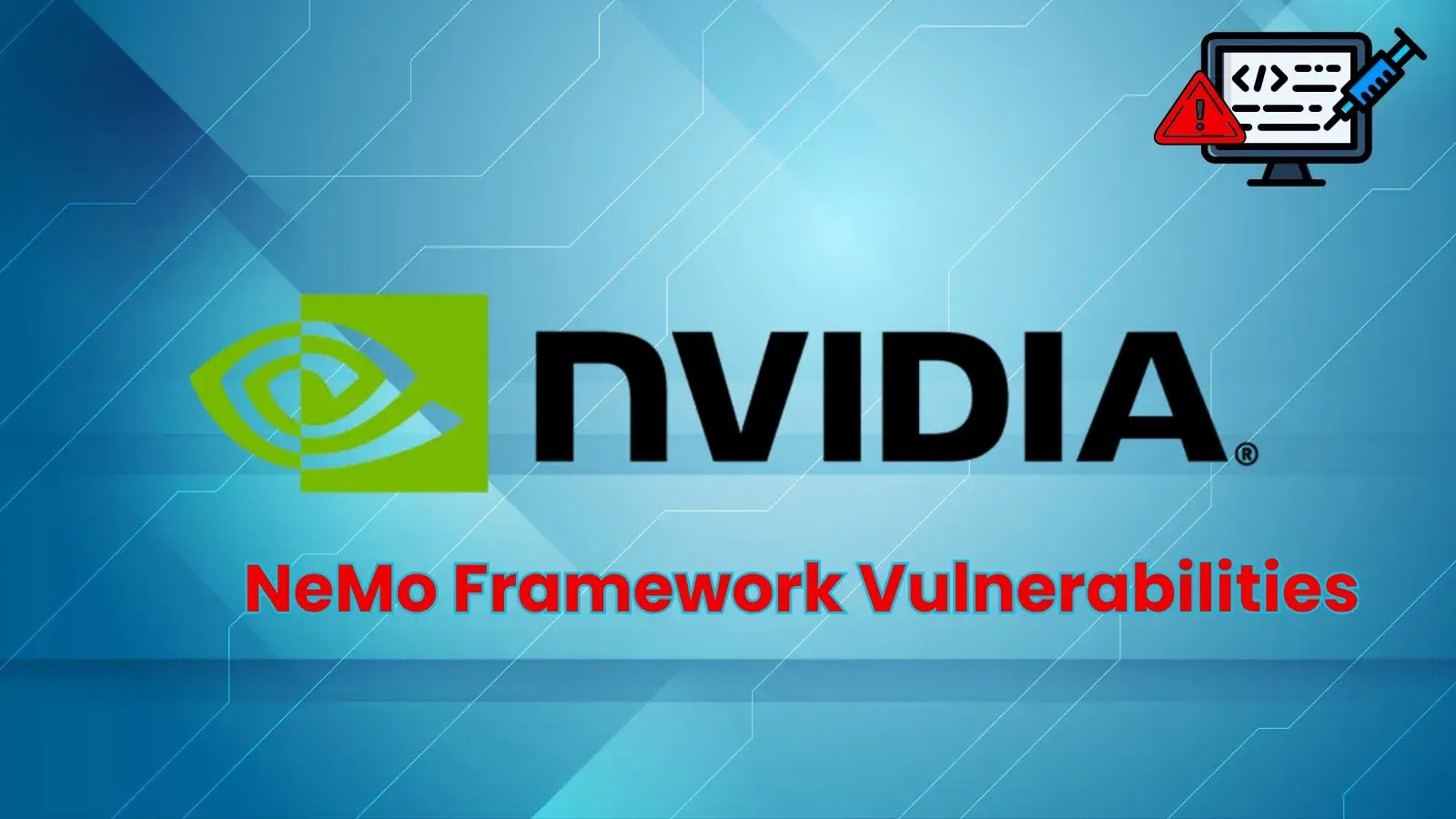Critical Vulnerabilities in NVIDIA NeMo Framework Expose Systems to Code Injection and Privilege Escalation
NVIDIA has recently addressed two significant security vulnerabilities within its NeMo Framework, a platform widely utilized for developing and training large-scale AI models. These vulnerabilities, identified as CVE-2025-23361 and CVE-2025-33178, each carry a Common Vulnerability Scoring System (CVSS) score of 7.8, indicating a high severity level. They affect all versions of the NeMo Framework prior to 2.5.0 across various operating systems, including Windows, Linux, and macOS.
Detailed Analysis of the Vulnerabilities:
1. CVE-2025-23361 – Improper Control of Code Generation:
– Description: This vulnerability resides within a specific script of the NeMo Framework. It arises from inadequate control over code generation processes, allowing attackers to manipulate the code execution flow.
– Potential Impact: Exploitation could lead to unauthorized code execution, enabling attackers to perform actions such as data manipulation, unauthorized access, and potential system compromise.
2. CVE-2025-33178 – Code Injection in BERT Services Component:
– Description: Located in the BERT services component of the NeMo Framework, this flaw permits code injection through the processing of malicious data inputs.
– Potential Impact: Successful exploitation may result in arbitrary code execution, privilege escalation, and unauthorized data access, posing significant risks to the integrity and confidentiality of AI models and associated data.
Technical Specifications:
– Attack Vector: Both vulnerabilities require local access with low privileges, making them accessible to attackers who have already gained a foothold within the system.
– CVSS Score: Each vulnerability has been assigned a CVSS score of 7.8, reflecting their high severity and the substantial risk they pose to affected systems.
– Common Weakness Enumeration (CWE):
– CVE-2025-23361 is associated with CWE-94, which pertains to improper control of code generation.
– CVE-2025-33178 is also linked to CWE-94, indicating similar issues related to code generation control.
Discovery and Reporting:
These vulnerabilities were identified and reported by security researchers from TencentAISec and the NISL lab at Tsinghua University. Their findings underscore the critical role of collaborative security research in uncovering and mitigating potential threats within widely used software frameworks.
Affected Versions and Platforms:
All versions of the NVIDIA NeMo Framework prior to 2.5.0 are susceptible to these vulnerabilities. This includes deployments across all major operating systems:
– Windows: Users running NeMo Framework versions before 2.5.0 on Windows platforms are at risk.
– Linux: Linux-based systems utilizing affected versions of the framework are vulnerable.
– macOS: MacOS users with NeMo Framework versions prior to 2.5.0 should be aware of the potential security risks.
Recommended Actions:
To mitigate the risks associated with these vulnerabilities, NVIDIA strongly recommends the following steps:
1. Immediate Update to Version 2.5.0 or Later:
– Users should promptly update their NeMo Framework installations to version 2.5.0 or later. The updated versions are available through NVIDIA’s official GitHub repository and the PyPI package manager.
2. Review and Secure AI Systems:
– Organizations should conduct thorough reviews of their AI systems to identify any signs of compromise. Implementing additional security controls around AI development pipelines can further safeguard against potential exploitation.
3. Monitor for Unusual Activities:
– Continuous monitoring of systems for unusual activities or anomalies can help in early detection of potential exploitation attempts.
Broader Implications:
The discovery of these vulnerabilities highlights the growing importance of security within AI development frameworks. As AI technologies become increasingly integral to various sectors, ensuring the security of the underlying frameworks is paramount to prevent potential data breaches, unauthorized access, and system compromises.
Conclusion:
The prompt identification and remediation of these vulnerabilities by NVIDIA, in collaboration with the security research community, demonstrate a proactive approach to maintaining the integrity and security of AI development tools. Users and organizations leveraging the NeMo Framework are urged to apply the recommended updates and security measures to protect their systems and data from potential threats.



